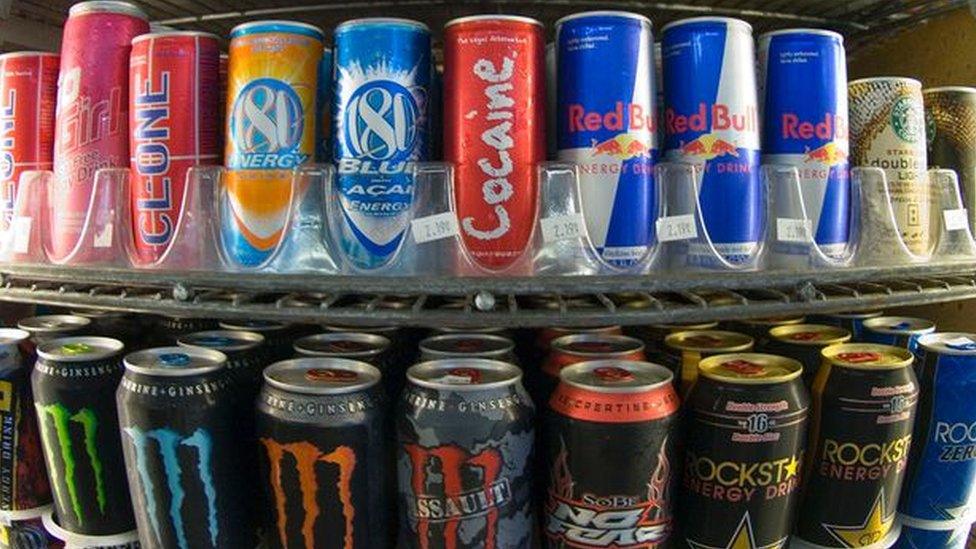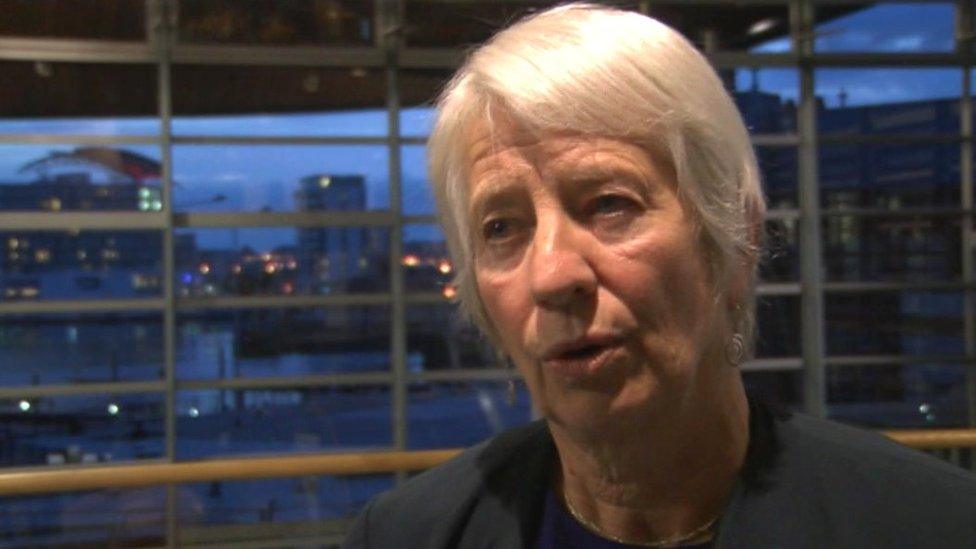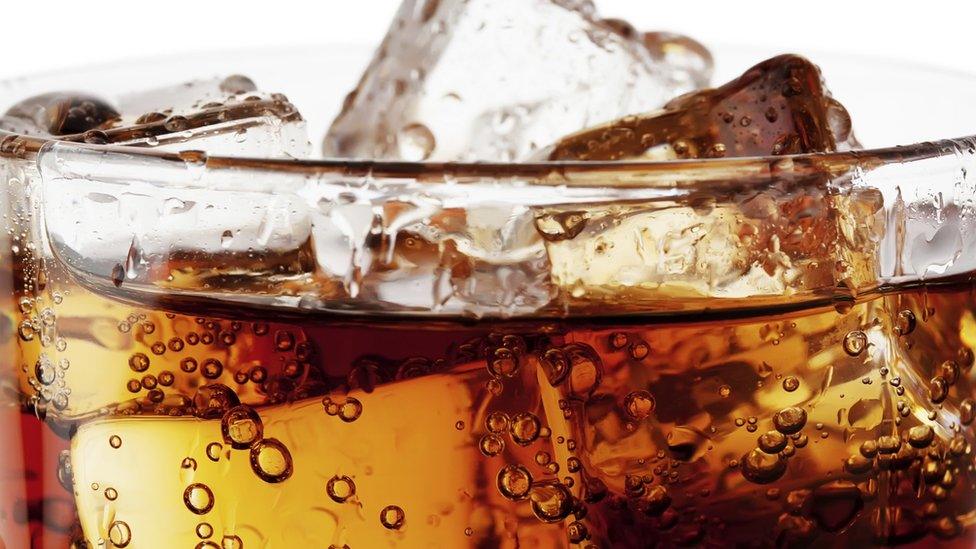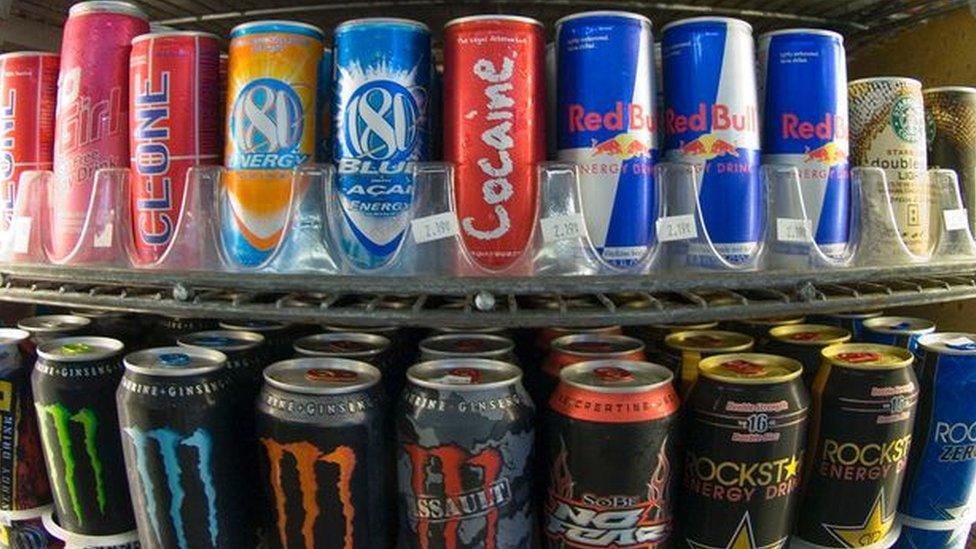Ban energy drinks sales to children, Welsh Government urged
- Published

A ban on selling high-caffeine energy drinks to children should be brought in, a Labour AM has said.
The call from Jenny Rathbone follows research that showed more than a third of Welsh schools have banned pupils from bringing them to school.
A body representing energy drinks manufacturers said it was "draconian" and not supported by evidence.
The Welsh Government said it was "fully aware" of health concerns and would explore ways of looking at the issue.
The sale of the drinks - high in caffeine and frequently high in sugar - has been banned in schools since 2007.
Slightly fewer than half of Welsh secondary schools responded to a survey by BBC Radio Wales' Eye on Wales programme. Sixty nine said they had gone further and confiscated the drinks over concerns they can affect pupils' behaviour and educational attainment.

Jenny Rathbone wants a ban on selling energy drinks to children
Latvia and Lithuania banned the sale of energy drinks to under 18s and Ms Rathbone wants the Welsh Government to explore introducing similar laws, using its powers to legislate on child protection.
"I think it should be around controlling the sale of these goods to children under the age of 16 at least, I would prefer 18," the Cardiff Central AM said.
The European Food Safety Authority has estimated about two thirds of 10 to 18-year-olds regularly consume energy drinks - even though they are not recommended for those under the age of 16.
The British Soft Drinks Association - which represents the majority of the UK's energy drink manufacturers - is opposed to legislation that would place age restrictions on their purchase.
Its director general, Gavin Partington, argued that such a "draconian ban" would not be justified by the evidence and would remove consumer and parental choice.
A spokesman for the Welsh Government said that it was "fully aware" of the health concerns surrounding energy drinks, especially for young people.
He added that a letter had been sent to the UK's food standards agency asking it to "explore further opportunities" to send appropriate messages to consumers.
The full story is on Eye on Wales, BBC Radio Wales, at 12:30 on Sunday 4 June
- Published30 May 2016

